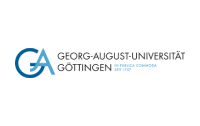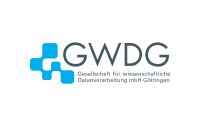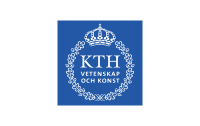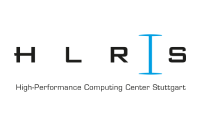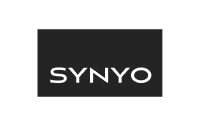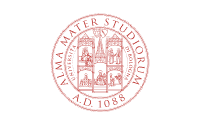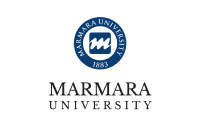Georg-August-Universität Göttingen Stiftung Öffentlichen Rechts
The University of Göttingen is an internationally renowned research university. Founded in 1737 in the Age of Enlightenment, the University is committed to the values of social responsibility of science, democracy, tolerance and justice. It offers a comprehensive range of subjects across 13 faculties: in the natural sciences, humanities, social sciences and medicine. With about 30,000 students and more than 210 degree programmes, the University is one of the largest in Germany. The mission of the Institute of Computer Science that supports the DECICE project is research and teaching on theoretical, applied and practical computer science.
Gesellschaft für Wissenschaftliche Datenverarbeitung MBH Göttingen
The GWDG is a service organization which works in conjunction with the University of Göttingen and the Max Planck Society as a data and IT service center. It also carries out independent research in the field of computer science and provides support in preparing future professionals for a career in information technology.
E4 Computer Engineering SPA
E4 Computer Engineering creates and provides hardware and software solutions for High Performance Computing, High Performance Data Analytics, Artificial Intelligence, Deep Learning and Virtualization. The growth of our company over recent years has enabled us to employ various open source technologies such as OpenStack, Kubernetes and CI / CD tools in our products.
VISION We want to become the leading supplier of hardware and software solutions, focused on technological innovation, with the aim of helping our clients to grow their businesses through the transformation and optimization of their IT systems.
MISSION Our goal is to make complex technologies simple. With passion and competence we implement and integrate the most advanced information technologies to achieve the best infrastructural performance possible, in computing, storage and networking, and excel in the development of innovative, flexible and safe solutions. We produce technologically advanced solutions, from first analysing your requirements, to eventually providing after-sales services, including complete support for all our clients.
Kungliga Tekniska Hoegskolan
The PDC Center for High Performance Computing at the KTH Royal Institute of Technology is a leading provider of high-performance computing (HPC) services for academic as well as commercial research and development efforts in Sweden. PDC’s e-infrastructure services are based on the computing capabilities of HPC and private cloud systems as well as various storage resources including a large-scale Lustre file system. The main HPC system is Dardel, an HPE Cray EX with an expected peak performance of about 13.5 petaflops. PDC’s service portfolio also includes assistance from application and systems experts.
PDC is involved in various research software development projects, most notably GROMACS, Neko, and VeloxChem. Furthermore, PDC is an active member of major international HPC infrastructure projects (e.g., PRACE) as well as various exascale research projects, such as the PDC-led BioExcel Centre of Excellence for Biomolecular Research.
University of Stuttgart
The High-Performance Computing Center Stuttgart (HLRS) is a research and service institution affiliated to the University of Stuttgart (USTUTT). HLRS has been the first and is presently one of the three large-scale national supercomputing centres in Germany. Consequently, it is one of the leading members of the German supercomputing activities, which are organised by the Gauss Centre for Supercomputing (GCS). HLRS offers its services to academia and industry and thus, concentrates on solution-oriented development and early product integration.
HLRS focuses on excellent research in High-Performance Computing, High-Performance Data Analytics and adjuvant technologies such as AI, Cloud Computing, and Quantum Computing. The world leading experience of HLRS is complemented by supporting users in parallel programming (e.g. via the annual Workshop on Sustained Simulation Performance), by developing productivity tools and libraries, by applying software engineering methods within the HPC domain and by enhancing system management software for HPC, HPDA, and Cloud Computing.
HUAWEI Technologies Düsseldorf GmbH
Huawei is a leading global information and communications technology (ICT) solutions provider.
In Europe, Huawei has currently over 13000 employees, some 2 400 of these work in highly skilled jobs, dedicated entirely to research, development and innovation, cooperating across the continent with more than 100 academic and research partners, investing over 75 Mio € p.a. in partnerships
Huawei’s Research Centre in Munich, which belongs to the Huawei Technologies Düsseldorf GmbH (HWDU) legal entity, streamlines and manages Huawei’s Cloud, Computing and AI efforts at the European level. The Munich Research Centre (MRC), strong of its 500+ work force and focuses on research, development and standardisation in the areas of cloud management and high-performance computing, AI, audio and video technologies. All in all, the MRC has participated over the years in more than 35 EU framework programme funded projects as a beneficiary, spanning from FP7 to Horizon Europe.
SYNYO GmbH
SYNYO is a global-acting enterprise focusing on research, innovation and technology located in 3 offices in Vienna, Austria. SYNYO explores, develops and implements novel methods, approaches, technologies and solutions in various domains tackling societal, political, ecological and economical challenges. SYNYO analyses the impact of emerging technologies from different angles and from an interdisciplinary perspective. The team at SYNYO consists of high-skilled employees specialized in various scientific and technical fields like Social Sciences, Safety & Security, Energy & Sustainability, Urban Future, Smart Health, or Digital Systems, Smart Technologies. The team of SYNYO consists of 31 employees working on national and international projects.
Consorzio TOP-IX – Torino e Piemonte Exchange Point
TOP-IX (TOrino Piemonte Internet eXchange) is a non-profit consortium founded in 2002 with the aim of creating and managing an Internet Exchange (IX) for the exchange of Internet traffic in North-West Italy. Furthermore, TOP-IX promotes and supports, through the Development Program (DP), technological and business innovation projects based on the broadband Internet. The two actions act synergistically to promote the growth of the territory.
Alma Mater Studiorum – Universita di Bologna
Almost 1000 years old, the University of Bologna (UNIBO) is known as the oldest University in the western world. Nowadays, UNIBO is one of the most important institutions of higher education across Europe and the second largest University in Italy with 11 Schools, 33 Departments and about 84.000 students; it is organized in a multi-campus structure with 5 operating sites (Bologna, Cesena, Forlì, Ravenna and Rimini), and, since 1998, also a permanent headquarters in Buenos Aires. With regard to its international reputation, UNIBO has been awarded the use of the logo “HR Excellence in Research” and is among the top 5 Italian universities in the main International rankings.
The activity of the University of Bologna will be conducted within the Department of Electrical, Electronic and Information Engineering (DEI). DEI is one of the largest departments in UNIBOs with an excellent research profile, attracting more than 25% of UNIBOs overall EU funding. Within DEI, the research activity is carried out by the ECS Lab, covering areas related to compilers, programming models and architectures in the domain of both embedded and high-performance energy-efficient multi- and many-core systems on a chip and large-scale distributed system.
Marmara University
Located in Istanbul, Marmara University is the largest university in Turkey with 16 faculties, 11 institutes, more than 80,000 students, and close to 3,500 academic personnel. VeNIT Research Lab is positioned at the Computer Engineering Department, Marmara University, conducts research in two main areas, (1) “V2X Communications/Networking/Internet of Things” and (2) “Artificial Intelligence/Machine Learning”, and is in strong collaboration with industry to propose innovative and promising solutions for real-world problems.
In DECICE project, VeNIT Lab will contribute to Digital Twin, APIs, and communication approaches for the enhanced Edge-Cloud continuum. AI, ML, and image processing solutions will be developed and integrated with the platform that will be built in DECICE. We will lead a use case on Intelligent Intersection and VRU safety. In cooperation with the partners in DECICE, we will also evaluate and demonstrate project outputs with real field use cases for “Connected Autonomous Vehicle” and “Intelligent Intersection/VRU Safety”.
BIGTRI Bilisim Anonim Sirketi
BigTRI is a spinoff company established by the researchers of VeNIT Lab, working on R&D projects with expertise on IoT, vehicular networks, computer vision and AI/ML. From research and prototyping to product development and branding, we build custom solutions for real world problems including but not limited to transportation systems, smart manufacturing, data infrastructures and retail.
BigTRI creates a value chain between academy and industry through close collaboration. The company has services and innovative solutions for C-ITS applications and testing, network monitoring, AI/ML-based data infrastructures, edge&cloud computing, image processing, and smart manufacturing.
In DECICE project, to which we will contribute with Artificial Intelligence, Digital Twin (DT) and Communication Optimization; DT and AI based resource management and scheduler will be developed, which allows to monitor the entire system in Edge and Cloud Computing architecture. We will also evaluate and demonstrate project outputs with real field use cases for “Connected Autonomous Vehicle” and “Smart Intersection/VRU Safety”.
The numerical Algorithms Group Limited
The Numerical Algorithms Group Limited (NAG) provides industry-leading numerical software and technical services to banking and finance, energy, engineering, and market research, as well as academic and government institutions. World-renowned for the NAG® Library – the most rigorous and robust collection of numerical algorithms available – NAG also offers Automatic Differentiation, Machine Learning, and Mathematical Optimization products, as well as world-class technical consultancy across HPC and Cloud HPC, code porting and optimisation, and other areas of numerical computing. Founded more than 50 years ago from a multi-university venture, NAG is headquartered in Oxford, UK with offices in the UK, US, EU, and Asia. For more information, visit nag.com/aboutus.
- Over 50 years of experience in finance and numerical engineering
- As a not-for-profit company, NAG reinvests revenues into research and development
- Boasts the largest commercially available collection of mathematical algorithms
- 60-70% of the world’s largest investment banks use NAG software
